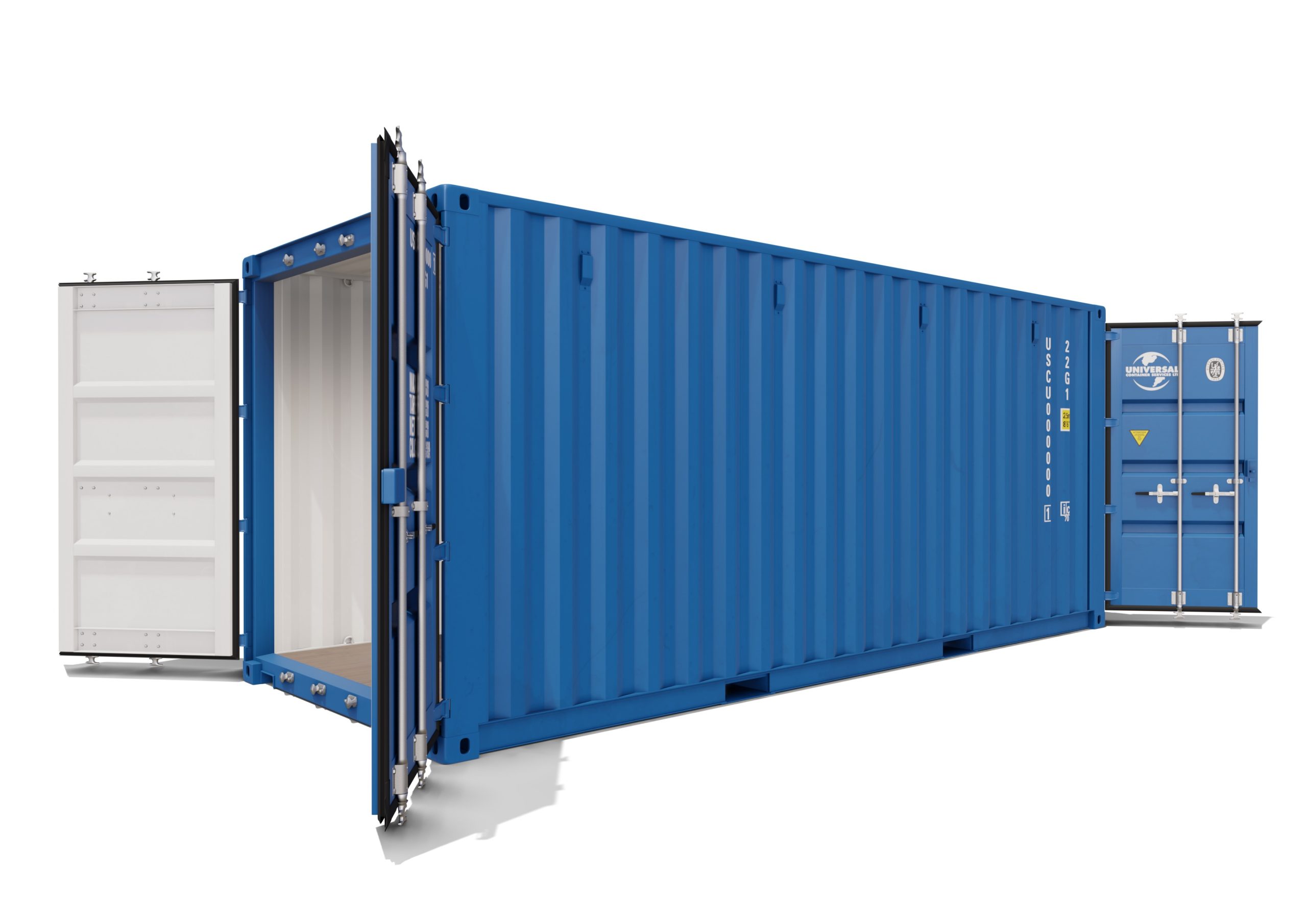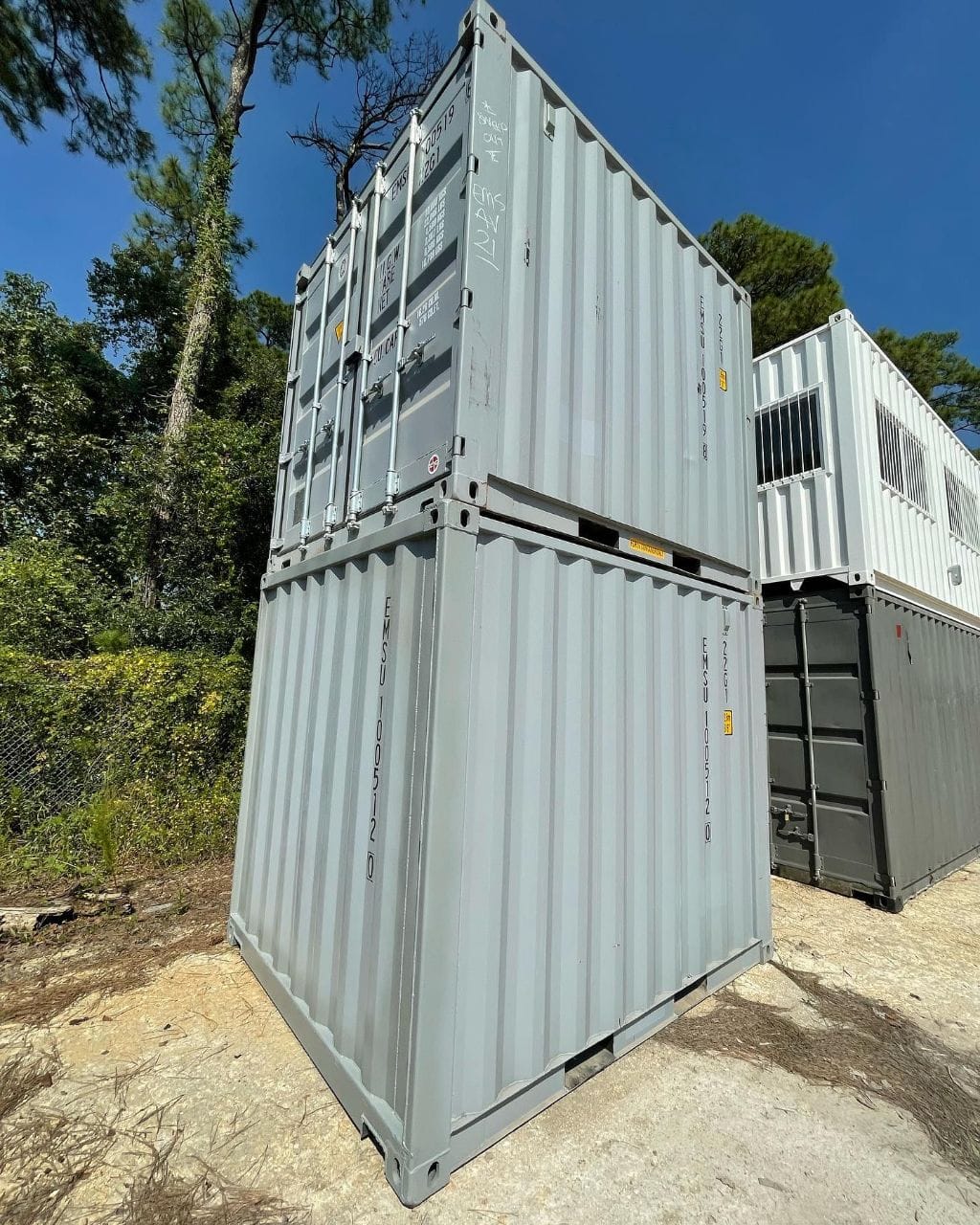Why More Eco-Conscious Builders Buy New Shipping Container 40 x 8 x 9.6 in Los Angeles
Why More Eco-Conscious Builders Buy New Shipping Container 40 x 8 x 9.6 in Los Angeles
Blog Article
The Ultimate Overview to Choosing the Right Shipping Container for Your Demands
When it concerns selecting the best delivery container, understanding your specific demands is necessary. You'll desire to think about elements like dimension, type, and material to ensure you make the very best choice. From common sizes to specialized alternatives, there's a great deal to discover. Plus, budgeting for both the container and any kind of modifications can make a large distinction. Allow's break down the essential aspects to help you find the best fit for your demands.
Recognizing Shipping Container Sizes
When you're picking a delivery container, recognizing the numerous sizes readily available is critical for making the appropriate decision. Shipping containers usually can be found in common lengths of 20 and 40 feet, yet you'll likewise discover various other measurements. Understanding the dimension you require depends on what you plan to store or transport.If you're moving smaller sized things, a 20-foot container could be suitable, while larger deliveries typically require a 40-foot container. Remember that the height can additionally differ; high cube containers use extra upright area, which can be advantageous for taller goods - Lease New Shipping Container 40' x 8' x 9’6".Before deciding, gauge your freight, and consider just how much room you'll need for filling and discharging. Always consider prospective future demands-- going with a somewhat bigger container may conserve you inconvenience down the line. Eventually, choosing the ideal dimension will certainly enhance effectiveness and assure your products are protected during transit
Types of Shipping Containers Available
There are numerous kinds of delivery containers readily available, each made for particular objectives and freight demands. The typical completely dry container is functional, ideal for general freight. If you're delivering subject to spoiling goods, consider a refrigerated container, which keeps a controlled temperature. For extra-large things, high cube containers use additional height, fitting taller loads.If you need to carry hefty machinery or devices, flat shelf containers offer a durable base without wall surfaces. Open-top containers permit for very easy loading of high cargo, with a detachable tarpaulin covering for security. If you're trying to find flexibility, consider a retractable container that can be easily kept when not in use.Lastly, specialized containers like storage tank containers are used for liquids, while vented containers are created for bulk freight that needs ventilation. Recognizing your freight type will certainly aid you choose the ideal container to satisfy your delivery requires successfully.
Material Considerations for Durability
When choosing a shipping container, the product plays a crucial duty in its toughness. You'll wish to evaluate the advantages of steel versus light weight aluminum, especially relating to corrosion resistance. Comprehending these variables can help you make a more educated selection for your delivery requires.
Steel vs. Aluminum Containers
Just how do you choose between steel and light weight aluminum containers for your delivery needs? Start by taking into consideration toughness. Steel containers are robust and deal excellent strength, making them perfect for heavy loads and extreme conditions. They withstand damage from effects and are typically less costly, which can be a significant element for budget-conscious buyers.On the other hand, aluminum containers are lightweight, which can save you on delivery expenses. They're much easier to maneuver and are a terrific choice if you need to carry products frequently. Aluminum is usually much more costly and much less durable than steel. Consider your particular demands thoroughly, including weight, price, and the sort of freight you'll be shipping, to make the appropriate option for your circumstance.
Rust Resistance Elements
Picking the appropriate product doesn't just include weight and expense; corrosion resistance plays a considerable function in sturdiness. When choosing a delivery container, take into consideration the atmosphere it'll face. Steel containers, while strong, can corrosion if not properly treated. Seek options with safety finishes or galvanization to enhance their life-span. Light weight aluminum, on the other hand, offers natural rust resistance, making it excellent for coastal areas or humid problems. Nevertheless, it can be more expensive. Furthermore, analyze the container's use-- if it'll be exposed to chemicals or rough weather, focus on products that can withstand these problems. Buying a corrosion-resistant container currently can save you from pricey repair services or replacements down the line. Pick sensibly for long-term benefits.
Adjustments and Customization Options
Delivering containers aren't just for moving products; they can be changed to satisfy your details requirements with numerous adjustments and my sources modification alternatives. You can convert a basic container into a comfortable workplace, a short-term retail shop, and even an individual gym. The possibilities are nearly endless.Think concerning adding windows, insulation, or ventilation to boost comfort. You might also consider electrical circuitry, pipes, or perhaps personalized shelving to improve performance. If protection's an issue, enhanced locks can offer peace of mind.For visual appeal, you can repaint the container or add an unique style to make it stand apart. Do not forget flooring options-- whether you desire long lasting plywood or something more sophisticated, it can boost the space.Ultimately, customizing your shipping container to suit your demands can improve usability and produce an unique atmosphere that mirrors your design.
Assessing Your Transportation Needs
When it concerns utilizing your customized shipping container, recognizing your transport needs is crucial. Start by identifying what you'll be delivery-- whether it's heavy devices, retail products, or individual products. Each sort of cargo has various needs pertaining to reference dimension, weight, and accessibility.Next, consider the range and mode of transport. Are you delivering in your area, across the country, or worldwide? This impacts the container's layout and performance. If you're making use of trucks, assure your container fits standard measurements for very easy loading and unloading.Additionally, think of transit problems. Will your items need unique security from climate or temperature level fluctuations? If so, you may require insulation or air flow attributes in your container.Lastly, evaluate exactly how usually you'll be delivering products. Regular deliveries may call for a much more durable and flexible container to satisfy recurring demands. By addressing these factors, you'll be well-prepared to select the appropriate delivery container for your needs.
Budgeting for Your Delivery Container
Setting an allocate your shipping container is vital for making certain a smooth acquiring procedure. Establish exactly how much you can pay for to invest. Prices can vary substantially based on dimension, problem, and type. New containers typically set you back extra, but used ones can offer considerable savings.Next, consider any kind of additional costs you could sustain, such as transport costs, shipment charges, and modifications. If you intend to customize the container, aspect in those costs too. Study various distributors to contrast rates and locate the finest bargain that meets your needs.Don' t neglect to include any kind of permits or laws that might relate to your acquisition and use the container. By clearly describing your budget plan, you'll be much better prepared to make educated choices, guaranteeing you obtain the best container without breaking the financial institution.
Upkeep and Take Care Of Long life
To guarantee your delivery container lasts for years, normal maintenance is crucial. Begin by examining the exterior for rust, damages, and damages. If you detect any type of concerns, resolve them instantly to protect against additional deterioration. Tidy the container occasionally, both inside and out, to get rid of dust, particles, and dampness that can result in corrosion.Ensure the doors secure appropriately and lubricate the hinges to avoid corrosion and sticking. If you're utilizing the container for storage space, think about including air flow to reduce humidity and mold and mildew development. For additional security, use a rust-inhibiting paint or sealant annually.If your container's situated in a severe atmosphere, like coastal areas, you may need to boost maintenance regularity. Keep an eye on the floor covering, as well; any kind of indications of wear need to be fixed today. With these easy actions, you'll extend the life of your shipping container substantially.
Regularly Asked Inquiries
How Do I Locate a Trusted Shipping Container Vendor?
To find a trusted delivery container distributor, start by investigating on-line evaluations, requesting referrals from friends or sector calls, and comparing prices. Always check their credentials and warranty they use high quality containers that fulfill this website your requirements.

Can I Rent a Shipping Container As Opposed To Buying?
Yes, you can certainly rent out a shipping container instead of purchasing one. Many distributors use rental alternatives, which can save you cash and give versatility if you just require it for a brief period.
What Allows Are Needed for Container Placement?

Are Delivery Containers Weatherproof and Appropriate for Outdoor Storage Space?
Yes, shipping containers are generally weatherproof, made to withstand rough problems. Their robust building maintains your things safe and completely dry, making them suitable for outside storage. Simply assure correct air flow to protect against dampness build-up inside.
How Do I Carry a Shipping Container When Acquired?

Report this page